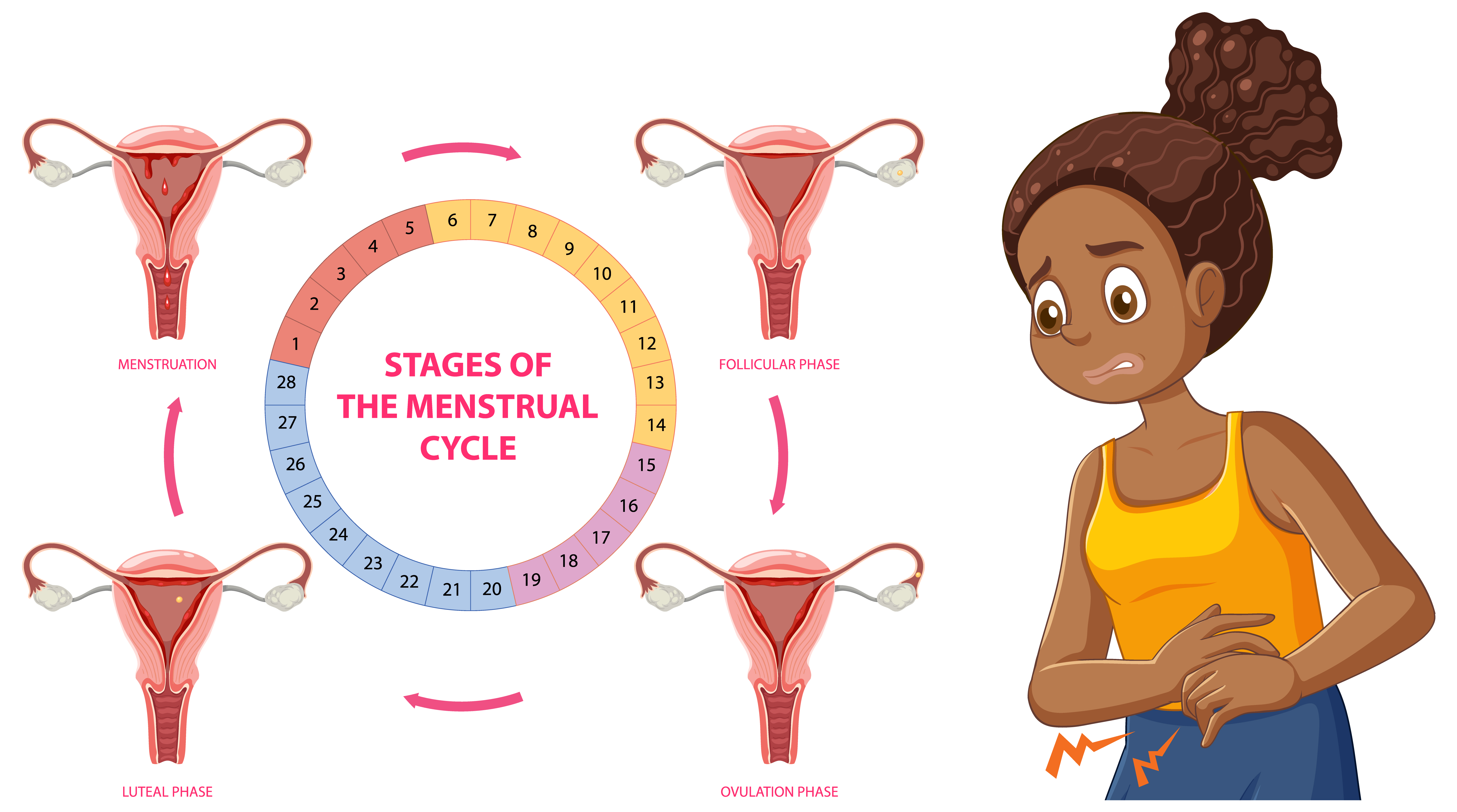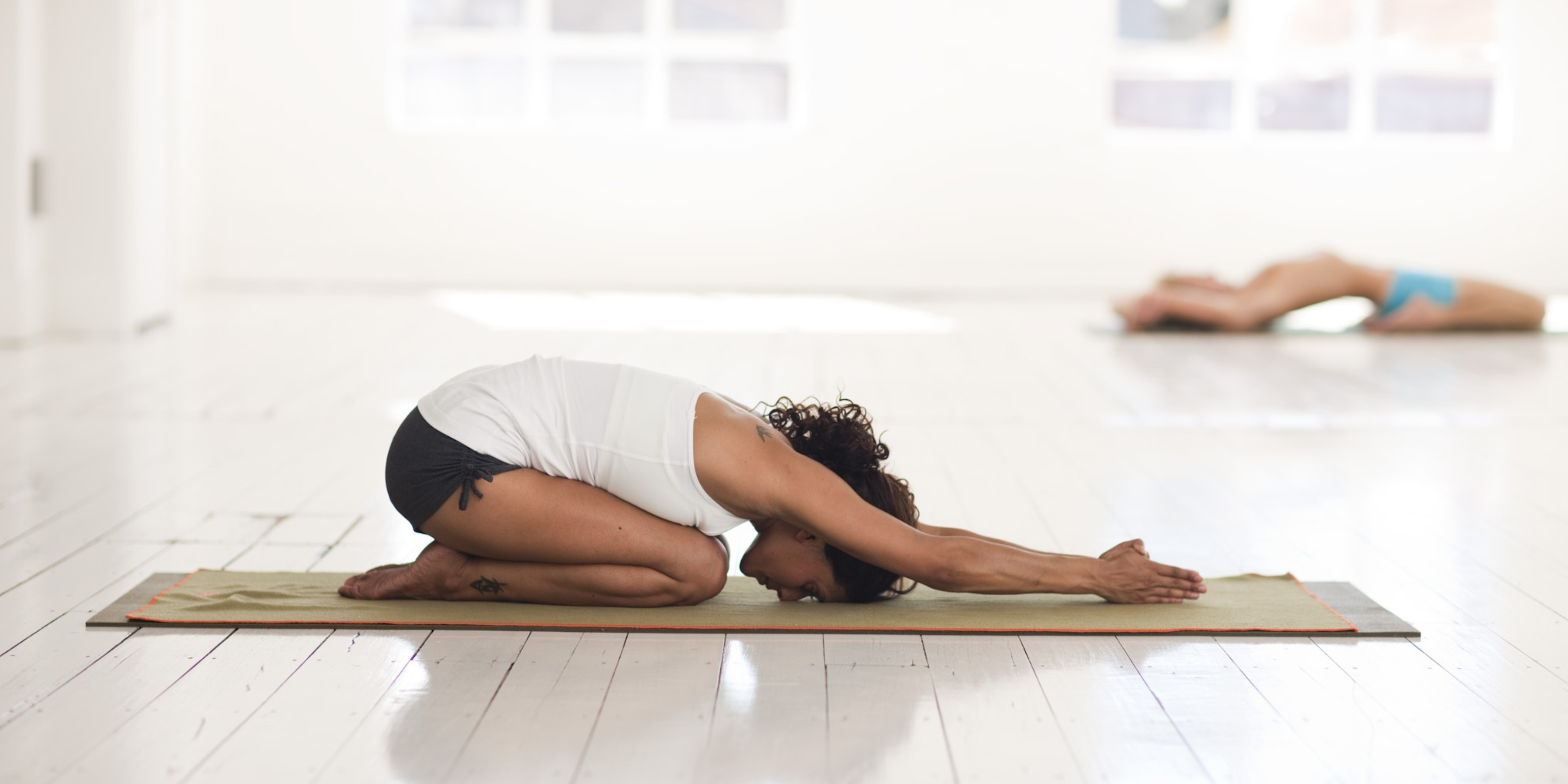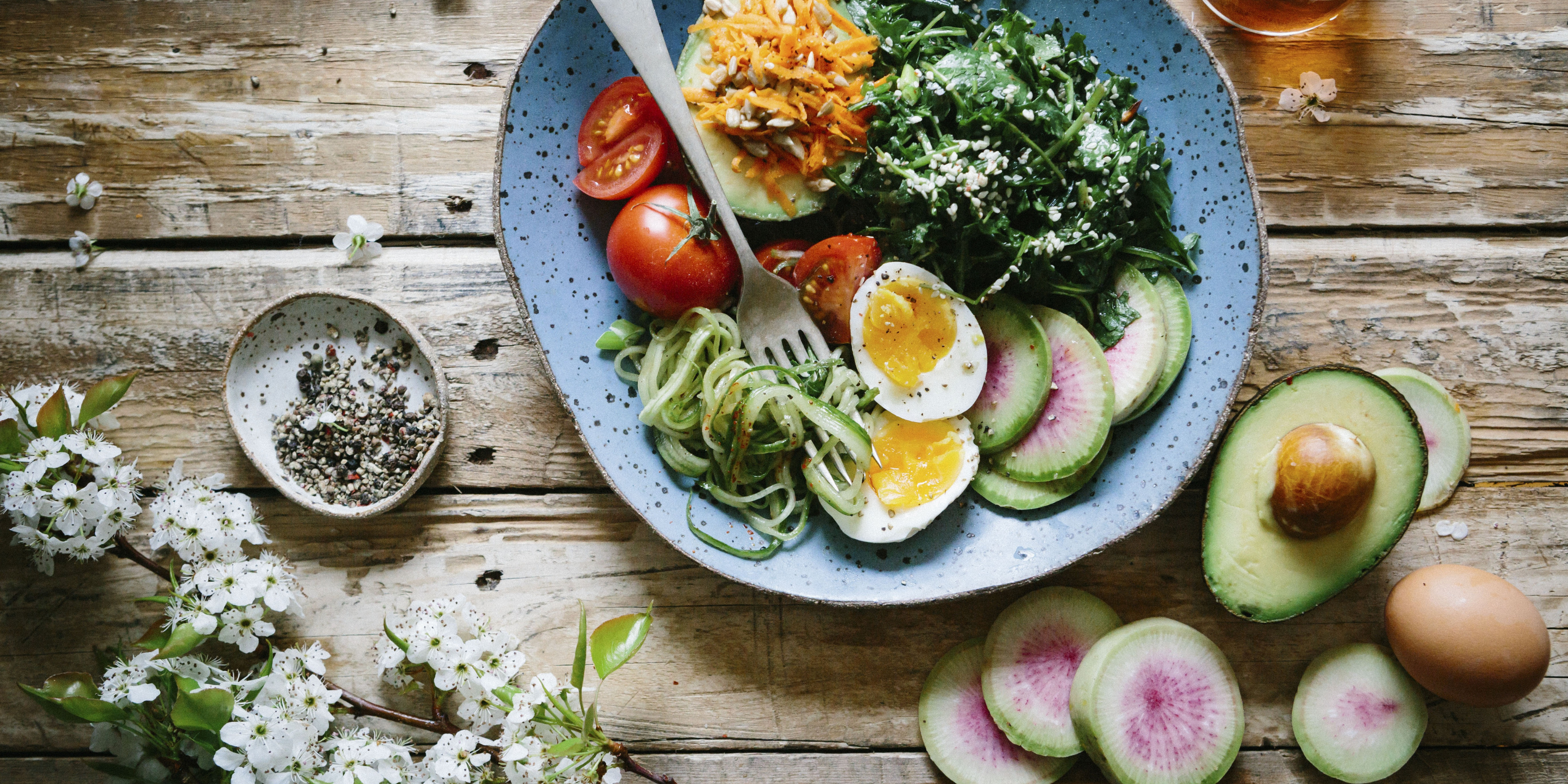Adapt your life according to your cycle
Hello everyone I hope you are well. Today I find you to tell you about a subject that affects almost all women, but which is nonetheless a little taboo in society, besides I even thought about several times before writing this article 😅. For some, talking about it is a completely normal fact, however, for others, it is a bit annoying, we cannot even cite the word, we prefer to deviate it for so -called more "subtle" terms. In short, you have already seen the title, in this article I tell you about the rules, the different phases of the menstrual cycle and how to adapt your life a little according to the English ☺️.


What is the menstrual cycle?
The menstrual cycle is this natural biological process preparing the body for possible fertilization. It is divided into different phases, it begins from the first day of bleeding (the rules) and ends the day before the next rules. This cycle generally varies between 21 to 45 days.
What are the different phases of the menstrual cycle?
The menstrual cycle is divided into 4 phases: the menstrual phase, the follicular phase, the ovulatory phase and the luteal phase.
The menstrual phase: this is the first phase of the cycle. And it is that of the expulsion of the ovum which has not been fertilized; in other words these are the rules. It lasts approximately 3-7 days.
The follicular phase: this is the phase where, when menstruation stops, the uterine lining or endometrium thickens. The ovaries then begin to prepare a follicle, which contains the egg and which will later be released or fertilized. This is why this phase is also called pre-ovulatory.
The ovulatory phase: this is the phase where the follicle releases the egg. The egg then settles in the uterus, waiting to be fertilized. Ovulation occurs around day 14 for those with a 28-day cycle.
The luteal phase: also called the premenstrual phase, this is the stage where, the egg having not been fertilized, is released. The body, through hormones, then sends a signal and the uterine lining begins to break down. Hence certain symptoms such as mood swings, cramps, feelings of heavy legs and others; Typically these symptoms are called premenstrual syndrome (PMS). This phase extends from the 15th day of the cycle to the day before the next period. But it is also during this phase that the body prepares for a possible pregnancy (in the case where the egg has been fertilized).


How to understand your body during these different stages?
At each phase of the cycle, the body reacts differently. I'm sure this has already happened to you, you wake up one morning, you're excited 🤩, you want to conquer the world and you feel that nothing, no one can stop you 😌. Then, like that, from one day to the next, you are lazy about everything and everyone, you want to cry, the whole planet annoys you. Oh yes ! It’s the daily life of all women ☹️😩! Well, it's simply because of hormones. When the English arrive, nerves are on edge. When they leave, it's a party 🥳 💃🏾 and when they announce themselves, it's the start of the war of emotions. But how can you adapt your life to your hormones?
During the follicular phase and the ovulatory phase, the body produces a lot of estrogen. Estrogen increases levels of serotonin, dopamine and noradrenaline, among other things it promotes good mood, motivation, calming, excitement, learning and sleep. So, during these phases, it's completely normal to want to conquer the world 😃, you have the energy for it. Take advantage of this to do all the “heavy” tasks that fall to you. If you go to the gym regularly, now is the time to push your weight training to the limit. This is your wonder women stage ☺️🤩.
On your skin, you will also see a change. During these phases your skin is less prone to acne or dryness. Estrogen promotes collagen production, skin hydration and wound healing. As a result, after your period, your skin is more supple, hydrated and blackheads disappear on their own without much effort. Ah, it’s the best time of the month 🤩🤭!


Then the other phases of your cycle occur, namely the luteal phase and the menstrual phase. During these, the body produces much more progesterone. Progesterone plays a role in the production of sebum, it dries the skin and plays a role in mood fluctuations. Between the 21st and 24th day of the cycle, it reaches its peak, then drops when there has been no fertilization. With estrogen and progesterone levels at their lowest, the uterine lining deteriorates. This is when premenstrual symptoms such as cramps in the uterus occur. During these phases you must focus on hydration (drinking a sufficient quantity of water to hydrate the skin), you must also focus on activities that do not require too much effort because the energy is not there (especially during the menstrual period 🙃). Every woman's body reacts differently, so listen to your body and see how you can overcome your stains (or your tears that randomly come out of nowhere 😅🥲). It is completely normal to be more sensitive during the luteal period and more aggressive during periods 😬. It's up to you to determine how to react (without hurting those around you). For gym regulars, choose gentle exercises like yoga or walking. Choose activities that generally lift your mood. Personally, when the English arrive, I isolate myself, I watch a good series and I rest, physically and mentally. It’s also during this period that my best article ideas come to me 😅🫣.
For your skin, make gentle scrubs and masks adapted to the needs of your skin. Also drink teas that will help you take care of it and that will support your body in the process of the arrival of the English (I have no idea where this term comes from but I adopted it 😂). I invite you to read the article teas to boost your beauty to help you get your bearings.


Women are governed by their hormones. Taking care of yourself comes down to understanding your body and dissecting the influence of hormones. Rules are a basis for this influence. Knowing how to react at different stages of your cycle affects how you view yourself and those around you. You can just let go or try to play with your hormones through your diet or by practicing regular physical activity.
Vitamin B6, found in foods like chicken, turkey, oats, bananas and milk, can help ease hormone fluctuations linked to PMS. Calcium and magnesium help too. You will find calcium in milk and cheese, green leafy vegetables, sardines, fish with edible bones. For magnesium, eat nuts, spinach and wholemeal bread. You can also take them in the form of food supplements.


That's all for this article, I hope you liked it and learned something about this subject. I had fun (finally 😅) writing it and sharing this information with you. Tell me in the comments or on the different pages of the blog how you experience your cycle and how you manage it. I will see you very soon for a new article, until then, take care of yourself ❤️.
See you soon 💋